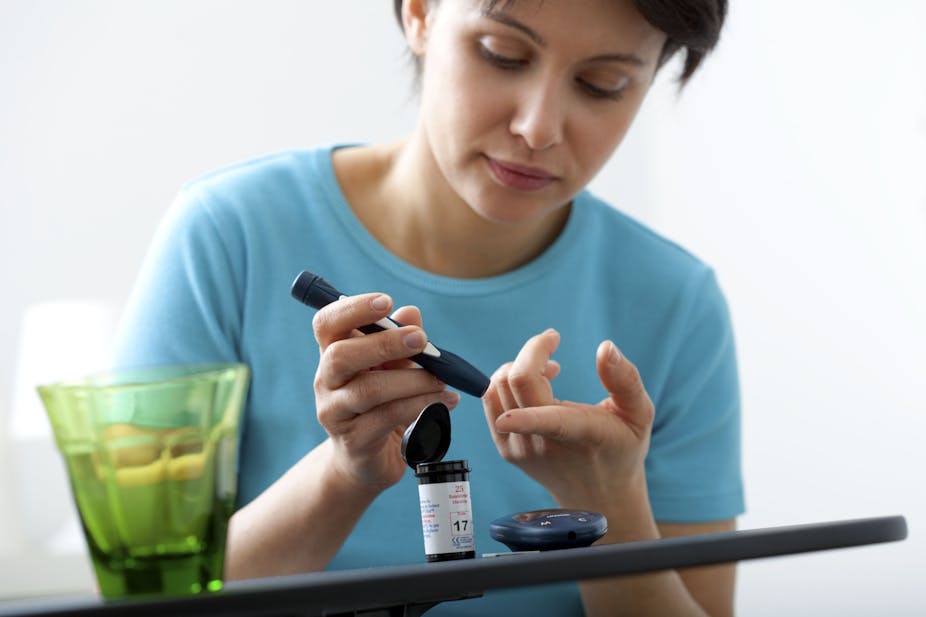Over the past few years there has been a push towards getting patients with long-term conditions such as diabetes to take on more responsibility for their conditions. The traditional wisdom is that GP surgeries are best placed to provide support for these patients to self-manage their care.
Because primary care is easy to access, efficient and can better reach people from deprived backgrounds, it has appeared to be the logical place to manage long-term conditions rather than in more expensive out-patient clinics. Take diabetes, for example. If you have the condition, your GP practice will call you in for regular checks and discussions about how well you are managing your condition. This support will include information and advice on diet and weight loss, exercise and how you’re managing any medicines. There are often also local courses that patients can be referred to by their GPs to help them learn about managing their condition.
Wising up
But in one of the largest international trials conducted in this area we found strong evidence to challenge this assumption. Using an approach called WISE (Whole System Informing Self-management Engagement), we attempted to implement and embed a routine self-management support system in GP practices in areas of high deprivation. Half of the 44 practices in our study received training in using WISE to support their patients. We then compared the health outcomes of these patients with patients who attended practices where training was not given. We recruited more than 5,500 patients and trained primary care staff to help assess patients’ support needs and direct them to the most appropriate resources such as online information, local support groups or exercise classes.
Despite the training and enthusiasm from both the wider health organisations and practice staff, we found that overall, GPs and nurses did not use the approach to change the way they engaged with patients during consultations. They did not have shared discussions about what sort of support patients needed or wanted and did not direct or refer patients to other local sources of support to the extent needed to improve patients’ health outcomes – things like quality of life, whether patients felt they’d shared in making decisions and feelings of confidence.
In fact, there was no difference in results for any patient outcomes or on service use between the group of patients attending WISE-trained practices and the usual care group. Overall, the evaluation showed that delivering self-management support in primary care doesn’t fit with the reality and demands of primary practice and it fails to integrate with patients’ expectations of what healthcare they should be receiving.
Broadening networks
Practices have a business approach to the work they do and they receive payment based on specific activities with patients, such as taking blood pressures and monitoring blood glucose levels – and these become the priorities of work in busy practices. This medically-focused attention is also what patients expect; they expect to get support in the day-to-day problems of living with a long-term condition from their family and friends rather than their nurse or GP.
But if people are going to engage with managing their condition it has to make sense to them in their everyday lives. They don’t expect referrals to walking groups, for example, from their GP or practice nurse – they go to them to get biomedical advice and medications.
So what does this mean for all those involved, from the patients to the professionals? While policy makers assume that individuals can be taught and supported to take responsibility for their health, in reality this isn’t happening in primary care practice – even with the five-star support and training that we provided through WISE.
The problem is that if you emphasise personal responsibility without considering the support, or lack of support, people get from others you overplay it. There is also a need to improve the support and resources that patients can get from linking and connecting with social and personal networks rather than depending on support on offer from healthcare professionals – in other words widening their network of support with others who also have long-term conditions.
People want to know how to manage their condition so that it does not interfere with their family and social life, their education or with their ability to work. In further research we found that people’s social involvement with local groups and personal networks (including healthcare professionals) can impact on their ability to manage a health condition – people can work out which contacts provide the best support or struggle with personal networks that are unsupportive and unhelpful.
Social involvement is linked to both health and well-being more generally and the capacity to personally manage long-term conditions is improved where people learn from each other, for example with dietary and cooking tips.
We feel that the future lies in focusing on ways to assist with helping people build up and use diverse and supportive networks – not just their GP. Trying to empower and motivate individuals to take on more responsibility for their health is not likely to work over the long-term. However, when we look to what networks and connections can improve access to locally available activities and support, we find it is more likely to create lasting benefits of autonomy, mutuality and reciprocity.

